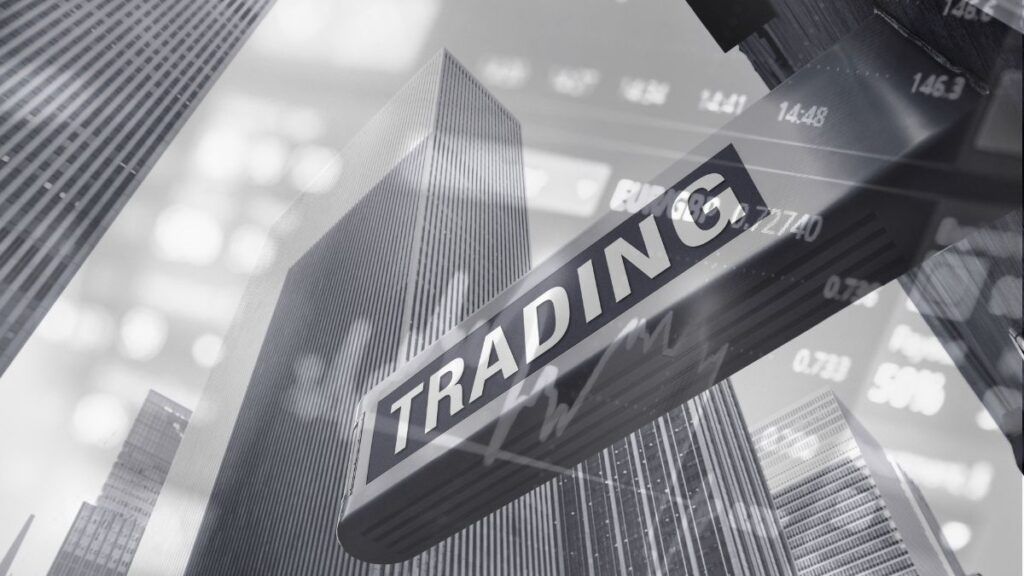Introduction
Trading looks exciting, but it is not easy. Many beginners think they lose money because they don’t know enough charts or strategies. In reality, most traders fail because of bad habits, weak discipline, and poor risk management.
This guide will show you the 14 most common mistakes that destroy beginner accounts. More importantly, you’ll learn how to avoid them with simple, clear steps.
You Need a Trading Plan Before Your First Trade
Why This Matters
A trading plan is like a map. It tells you where to enter, where to exit, and how much to risk. Without a plan, you are guessing, and guessing usually leads to losses.
Common Mistakes Beginners Make
-
Trading based on tips from others
-
Entering trades with no clear goal
-
Changing rules in the middle of a trade
How to Build a Simple Plan
Checklist Example
-
Write down your goal for each trade
-
Decide entry and exit points before entering
-
Always set a stop-loss
-
Limit your daily loss to avoid revenge trading
-
Review your plan weekly and adjust if needed
Do Not Risk Too Much on One Trade
Why This Matters
Taking big risks feels exciting, but one bad trade can wipe out weeks of progress. This happens when beginners put too much money into one position.
Common Reasons Beginners Over-Risk
-
FOMO (fear of missing out) makes them chase big wins
-
Revenge trading after a loss leads to bigger risks
-
Believing one trade will “change everything”
How to Size Your Trades Safely
3-Step Method for Position Sizing
-
Choose your stop-loss level first
-
Risk only 1–2 percent of your account per trade
-
Adjust your trade size so the loss equals your chosen risk
Tip for Small Accounts
If risking 1–2 percent feels too small, use a fixed dollar risk like $10 or $20. If you break your rule, step back and trade on paper for a week. This resets your discipline without losing money.
Stop Overtrading
Why It Happens
Many beginners feel they must always be in the market. Impatience makes them jump into trades without good reasons. Other triggers include:
-
Chasing losses after a bad trade
-
Feeling unstoppable after a few wins
Why Overtrading Kills Accounts
The more you trade without discipline, the more mistakes you make. Overtrading leads to:
-
Higher trading costs
-
Poor trade quality
-
Emotional exhaustion
How to Avoid Overtrading
Daily Guardrails
-
Set a daily trade limit and stick to it
-
Only enter trades that fit your written rules
-
Stop trading for the day if you break your rules
Reset Routine
-
After a bad day, switch to paper trading for practice
-
Use your journal to review why you overtraded
-
Return to live trading only when you feel disciplined again
Always Use a Stop-Loss Order
Why Stop-Loss Protects Your Account
A stop-loss order tells your broker to exit when a trade goes against you. It prevents one mistake from turning into a disaster. Without it, you risk losing far more than planned.
Common Stop-Loss Mistakes
-
Not using a stop-loss at all
-
Moving the stop-loss further away out of fear
-
Placing stops randomly without checking the chart
How to Use Stop-Loss the Right Way
Practical Stop-Loss Rules
-
Set a stop-loss before entering every trade
-
Place it at logical support or resistance levels
-
Keep it tight enough to limit losses, but not so tight that normal price moves knock you out
Accept Losses Early and Learn From Them
Why This Matters
Every trader loses. Losses are not the problem—refusing to accept them is. Holding onto bad trades often turns small losses into account-destroying losses.
Common Traps
-
Denial: hoping the trade will recover
-
Revenge trading: trying to win back money immediately
-
Overconfidence: believing one big trade will fix everything
How to Build the Right Habit
Practical Steps
-
Cut losses quickly when your stop-loss is hit
-
Record each loss in your trading journal
-
Review your trades weekly to spot repeated mistakes
Don’t Just Follow the Crowd (Herd Mentality)
Why Herd Mentality Hurts Beginners
Many beginners copy what others are doing. They buy because everyone is buying. They sell because everyone else is scared. By the time the crowd acts, the best opportunity is often gone.
Common Traps of Following the Crowd
-
Buying stocks because they trend on social media
-
Selling too quickly during market panic
-
Ignoring your own rules to copy others
How to Stay Independent
Research Steps Before Trades
-
Check charts and data before entering
-
Confirm news from reliable sources
-
Write down your reasons for trading
Trust Your Plan Over Social Media Hype
-
Stick to your own strategy
-
Use the crowd only as background info, not your main signal
Diversify Your Trading Portfolio
Why Diversification Matters
Putting all your money into one trade or one asset is very risky. If it fails, your account can take a big hit. Diversification spreads risk so one loss does not ruin everything.
Common Mistakes With Diversification
-
Trading only one type of asset, like just forex or just crypto
-
Going all-in on one “sure thing”
-
Avoiding diversification because it feels slower
How to Diversify Correctly
Simple Tips for Portfolio Balance
-
Trade at least two or three different markets
-
Never risk more than 10–15 percent of your account in one position
-
Mix short-term and long-term trades to reduce risk
Do Proper Market Research Before You Trade
Why Research Matters
Guessing is not trading. Beginners who trade on tips, gut feelings, or social media hype often lose money. Successful traders prepare before every move.
Signs of Poor Research
-
Entering trades without checking charts
-
Ignoring important news and updates
-
Trusting unverified tips
How to Research Smarter
Pre-Trade Checklist
-
Review price charts for entry and exit points
-
Read market news and events that affect prices
-
Check trading volume to confirm market interest
-
Write down your trade reason in your journal
Always Check the Risk-to-Reward Ratio
Why This Matters
The risk-to-reward ratio shows how much you could lose compared to how much you could win. Beginners often ignore this and take trades where the risk is bigger than the reward.
Common R:R Mistakes
-
Taking trades just for the thrill
-
Forgetting to calculate risk before entering
-
Only thinking about profit and not the downside
How to Use R:R Correctly
Simple Rules for Safer Trades
-
Aim for at least a 1:2 ratio (risk $100 to make $200)
-
Use stop-loss orders to set clear risk levels
-
Write the R:R in your journal before entering any trade
Keep a Trading Journal
Why Journaling Helps Beginners
A trading journal is one of the best tools for learning. It helps you see patterns in your behavior and improve your strategy over time. Without it, you are likely to repeat the same mistakes.
Mistakes Traders Make Without a Journal
-
Forgetting why they entered a trade
-
Ignoring emotions that led to bad decisions
-
Not tracking risk-to-reward ratios
How to Build a Useful Trading Journal
What to Track
-
Entry and exit points
-
Reasons for each trade
-
Risk-to-reward ratio
-
Emotions during the trade
How to Review Weekly
-
Look for repeated mistakes
-
Check if you followed your plan
-
Write down lessons learned for the next week
Focus on One Market Before Trading Many
Why Beginners Jump Between Markets
New traders often chase excitement. They move from stocks to forex to crypto to commodities. This spreads their focus too thin.
Risks of Trading Too Many Markets at Once
-
Increased mistakes from lack of focus
-
Overtrading across multiple markets
-
Slower learning because attention is divided
How to Focus Your Learning
Step-by-Step Focus Plan
-
Start with one market and learn it well
-
Trade small and review your results
-
Once consistent, add another market slowly
Don’t Let Overconfidence Ruin You
Why Confidence Turns Into Overconfidence
Confidence is good, but too much of it makes beginners careless. After a few wins, traders may feel invincible and ignore their own rules.
Signs of Overconfidence in Beginners
-
Increasing trade size too quickly
-
Ignoring stop-loss orders
-
Believing they are on a “winning streak”
How to Stay Grounded
Follow Your Plan, Not Winning Streaks
-
Stick to the same rules no matter how many wins you have
-
Don’t let one lucky trade change your system
Use Small Wins to Build Discipline, Not Ego
-
Treat each win as proof your system works
-
Focus on consistency, not fast growth
Believe in Your Potential (With Discipline)
Why Beginners Underestimate Themselves
Many new traders believe only experts can succeed. In truth, anyone can learn trading with patience and practice.
How Learning and Preparation Build Skill
-
Reading and studying gives you knowledge
-
Journaling and reviewing builds discipline
-
Paper trading lets you practice without risk
How to Grow Step by Step
Dedicate Time to Study and Practice
-
Learn basic strategies and risk rules
-
Watch charts and practice setups daily
Use Paper Trading and Small Positions to Learn Safely
-
Start with paper trades to test your skills
-
Move to small positions once you are consistent
Control Your Emotions While Trading
Why Emotions Destroy Discipline
Emotions like fear, greed, and revenge can control decisions. They make traders break rules and take bad trades.
Common Emotional Traps
-
Fear: closing trades too early
-
Greed: holding trades too long
-
Revenge: entering trades just to recover losses
How to Trade Without Emotions
Practical Steps
-
Follow your written rules, not your feelings
-
Limit the number of trades per day
-
Use your journal to spot emotional mistakes
Learn to Stop Trading After Emotional Triggers
-
Take breaks after big wins or losses
-
Step away if you feel stressed or angry
Final Thoughts: Build Discipline, Avoid Mistakes, and Grow With a Strategy
Trading success comes from avoiding mistakes and following rules. You don’t need the perfect strategy. You need discipline, patience, and good risk management.
If you avoid these 14 beginner mistakes and focus on learning step by step, you’ll be much closer to long-term success.
For beginners who lack capital, prop firms can also be a good way to start trading with less personal risk.
Frequently Asked Questions
What is the number one mistake beginner traders make?
The biggest mistake beginners make is overtrading. Many new traders feel the need to always be in the market, which leads to poor setups and bigger losses.
How much should a beginner risk per trade?
Most experts recommend risking only 1–2 percent of your account per trade. This protects you from losing too much on a single bad trade.
Why is a trading journal important for beginners?
A journal helps you track your decisions, emotions, and results. It shows patterns in your mistakes and helps you improve discipline over time.
Should beginners trade multiple markets?
No. Beginners should focus on mastering one market first. Spreading across many markets increases mistakes and slows down learning.
How can I control my emotions while trading?
The best way is to stick to a written plan, set daily trading limits, and stop trading when you feel stressed or emotional. Journaling also helps.






